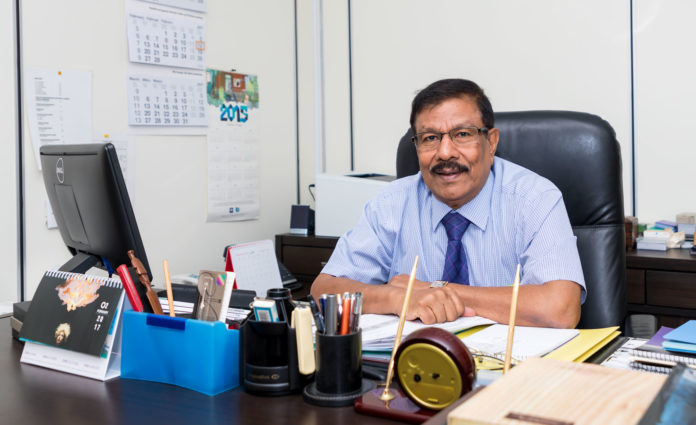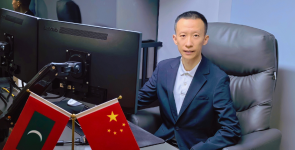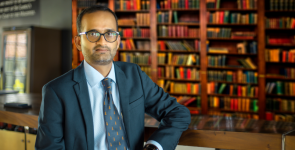
by Ruba Ali
Mr. Mohamed Umar Maniku, better known as M U Maniku, is referred to as ‘The Man Who Built Paradise’ due to his rightful honor as the man who instigated the Maldives tourism industry.
With no banks, no airport, no telephones and severely limited resources, Mr. Maniku’s decision to open the first resort in the Maldives, Kurumba Village in 1972, was a decision that revolutionized Maldives. Despite warnings from the United Nations that Maldives did not yet have the required infrastructure to support the business, Mr. Maniku and his partners successfully introduced a new industry to the country.
“The day of the first tourist arrival was an unforgettable day. It gave us some courage to go forward with our plans. The first direct flight from Europe, a DC-9 aircraft carrying 260 tourists directly from Frankfurt was also a moment that I will remember forever. Back then, tourists came to Maldives from Sri Lanka on chartered flights, sort of like excursions where small aircraft carrying five to six people would come around in the morning and leave in the evening. Soon, brochures began combining Sri Lanka and Maldives, sort of like a grouped destination. As our tourism venture grew, the government decided to upgrade the airport. We were growing so rapidly, and people were so interested that the flights never really stopped landing even while the airport was being developed.
We were speaking to German tour operators and Condor airline, and eventually, Condor began the first flights direct from Frankfurt to Maldives. It signified the day we separated from Sri Lanka and became our own destination.”
The turning point for Tourism in the Maldives was also devised by Mr. Maniku, when Kurumba Village was redeveloped into a world-class hotel in 1987, moving Maldives from low-end destination to high-class luxury holiday spot. Universal Enterprises is one of the most reputable companies in Maldives today and is a trailblazer in resort development and management, with a diverse portfolio of tourism-related and other businesses under its umbrella. Holding eight luxury resorts, and with partnerships with world-renowned luxury brands such as Starwood and W-Hotels and Per Aquum, Mr. Maniku continues to lead as an example to the industry.
“Back in the early days, the rates for Kurumba was around $23 and we had to pay $5 commission to the Sri Lankan tour operators. We decided we can’t continue like this, with low-grade tourism when the destination we are marketing has such a natural vibrancy and high market value. We hired an architect from Germany and built a star-class hotel in Kurumba, complete with restaurants and a swimming pool, the first pool in the Maldives. Many people followed our example, and international players coming in upgraded Maldives tourism to another dimension completely. Daring architects came and did new and exciting things with our natural habitat, that was the beginning of the third phase of tourism when the celebrities started coming and blew our little nation to the top.
I know the potential of Maldives very well, and if we remained at the low end then we would not be utilizing the great possibilities that our country has to offer. We realized we should have the guts to do something better than this. Our courage to build better hotels and our belief in our country’s potential was the stepping stone to where tourism is now.
We must be mindful, though; Maldives isn’t a place for just very rich people. I’ve always said, Maldives must have a bed for everyone. Just like airlines, there’s a business class, first class, economy class. We have our booming guesthouse industry now, which I feel is very healthy for the Maldives tourism Industry, we have our mid-range hotels and then the top level hotels as well.”
Mr. Maniku has also served at several important government positions, such as Head of Male’ International Airport Limited (MIAL) and Chairman of the Airport Advisory Committee, and continues to serve as the Chairman of Maldives Association of Tourism Industry (MATI) since its inception. He is also a founding member of the Maldives National Chamber of Commerce and Industry (MNCCI) where he served as Chamber President.
“Tourism has had ups and downs through the years, some terrible tragedies such as the Gulf War, or the tsunami in 2004, but we have managed to ride through them. Tourism isn’t always a bed of roses, but we have shown that with tact and dedication we can still remain in the game.
Maldives has always been very sensitive to bed increases. What we need now is to do more work to convince people to choose us above the other destinations on offer. We have to put in the work to promote ourselves to our market because the market potential of Maldives is continuously growing.”
Mr. Maniku’s companies are some of the biggest employers in the country today and are both, directly and indirectly, responsible for the livelihoods of thousands of Maldivians. The company conducts regular CSR projects aimed at important areas such as training and development of youth and donations to the orphanages, as well as waste management, energy management and programs to protect the marine environment of Maldives.
“We conduct a lot of CSR projects that we don’t necessarily publicize; in areas like training and development of our youth. Through medical scholarships, we have produced over 30 doctors who are specialized in their fields. We have created a unit of specialists and more students are still studying. We have a dedicated CSR component every year and there are many more plans in the pipeline.”
Mr. Maniku is a man of consistently dynamic and distinctive vision, who has helped recognize the critical problems and needs of the foundling markets and has helped improve the human condition of the country and society as a whole through exploring new breakthrough ideas.
“I think the future of the industry is now changing because the industry is moving and changing rapidly from the days of brochures to the days of mobiles, having everything at your fingertips. If you don’t change your product to fit the new technologies, then your product will not work. The new generation is very tech savvy, and I’m confident the younger people will rise to the challenge and play a very big role in tourism in the future.”











